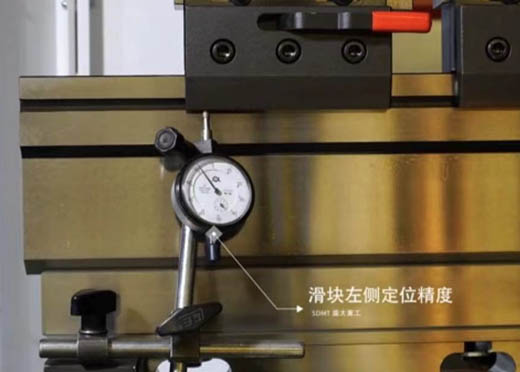How Accurate is a Press Brake?
May. 23, 2024
The accuracy of a press brake depends on several factors, including the type of press brake, the quality of its components, the material being bent, and the skill of the operator. Modern press brakes, particularly CNC (Computer Numerical Control) models, are designed to offer high levels of precision and repeatability, but there are still variables that can influence the final outcome.
Hydraulic press brakes are known for their precision and consistency. They use hydraulic cylinders to apply force, which can be finely controlled to achieve accurate bends. The accuracy of hydraulic press brakes typically ranges from ±0.0004 inches (±0.01 mm) to ±0.002 inches (±0.05 mm), depending on the machine's quality and maintenance.
Mechanical press brakes rely on a flywheel and mechanical linkage to deliver force, offering high speed and precision. However, they may not be as adjustable as hydraulic models. Their accuracy is generally around ±0.002 inches (±0.05 mm) to ±0.004 inches (±0.1 mm).
Electric press brakes, or servo-electric press brakes, use electric motors for precise control over the bending process. These machines can achieve very high accuracy, often in the range of ±0.0004 inches (±0.01 mm) to ±0.001 inches (±0.025 mm), making them suitable for applications requiring tight tolerances.
Pneumatic press brakes, which use compressed air to power the bending process, are generally less precise than hydraulic, mechanical, or electric press brakes. Their accuracy is typically around ±0.004 inches (±0.1 mm) to ±0.008 inches (±0.2 mm), making them suitable for less demanding applications.
CNC press brakes are equipped with advanced software and controls that allow for highly accurate and repeatable bends. The accuracy of CNC press brakes can be as high as ±0.0004 inches (±0.01 mm) to ±0.001 inches (±0.025 mm). The computer control allows for precise adjustments and compensations for material variations, making these machines ideal for complex and high-precision tasks.

Several practices can enhance the accuracy of a press brake:
Regular maintenance, including calibration and inspection of the press brake, ensures that it operates within its specified accuracy range. This includes checking hydraulic fluid levels, inspecting mechanical components, and ensuring all moving parts are well-lubricated.
Using high-quality tooling, such as precision-ground punches and dies, can significantly improve bending accuracy. Worn or damaged tooling should be replaced to maintain consistent results.
An experienced operator can make adjustments and compensations during the bending process to achieve better accuracy. Training and experience play a crucial role in maximizing the capabilities of the press brake.
Proper handling and preparation of the material, including ensuring it is clean and free from defects, can also enhance accuracy. Consistent material properties, such as thickness and hardness, contribute to more predictable bending results.
Q: How can I improve the accuracy of my hydraulic press brake?
A: Regular maintenance, using high-quality tooling, and ensuring proper material handling are key factors. Additionally, utilizing a CNC control system can help achieve higher precision.
Q: Are CNC press brakes always more accurate than manual press brakes?
A: Generally, yes. CNC press brakes offer advanced control and automation that can achieve higher accuracy and repeatability compared to manual press brakes. However, the final accuracy also depends on other factors such as machine condition and operator skill.
Q: What role does tooling play in press brake accuracy?
A: Tooling is critical for accuracy. Precision-ground punches and dies ensure consistent bending results. Worn or damaged tooling can lead to inaccuracies and should be replaced regularly.
Q: Can material properties affect press brake accuracy?
A: Yes, variations in material thickness, hardness, and quality can impact bending accuracy. Using consistent and high-quality materials helps achieve more predictable and precise bends.
Q: How does operator skill influence press brake accuracy?
A: Skilled operators can make fine adjustments and compensations during the bending process, leading to better accuracy. Training and experience are crucial for maximizing the press brake's capabilities.

Anhui Hisman Intelligent Equipment Manufacture Co., Ltd. is located in A-8#,Dahe Industrial Park,Bowang Town, Bowang District,Maanshan City,Anhui Provence,China.
Tel: +86 19955505001
Email: info@ahhisman.com
Fax: +86 0555 6765 075
Phone: +86 138 5551 1880
Add: A-8#, Dahe Industrial Park, Bowang Town, Bowang District, Maanshan City, Anhui Province, China
INQUIRY